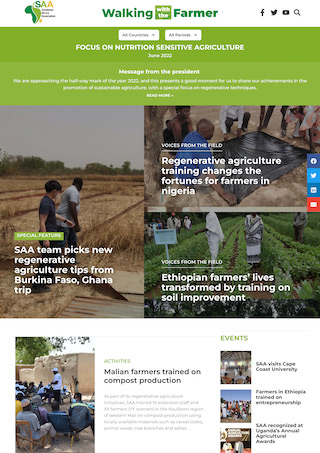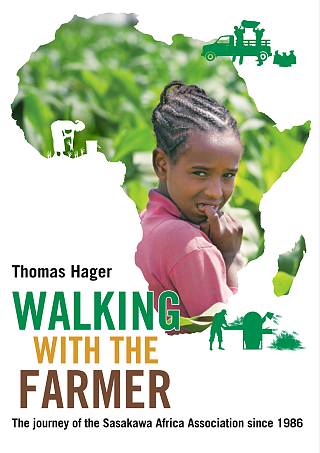Not one bean lost--something we never thought would be possible!

Grain storage loss to insects is a major challenge for smallholder farmers, at times estimated to be at least 20 percent for major crops such as corn and common beans. Without crop-saving bags, farmers need to sell their crops soon after harvest or use insecticides which are not necessarily effective or may not be safe because of improper use.
Ethiopian farmers, as in many other African countries, store their grains in traditional storage facilities constructed from mud, clay, dung, and plant materials or mixtures of these. Cognizant of the challenges of post-harvest losses and with the aim of addressing the problems faced by the farmers during storage, Sasakawa Global-2000 in collaboration with Development and Extension Agents of the Ministry of Agriculture and Natural Resources (MANR) who work directly with farmers, started implementing a program to reach 3155 villages to introduce and disseminate PICS3 bags for a year from September 2015.
In June 2016, Farmers Field Days Open-the-bag ceremonies (OBC) were held in Hawassa Zurya Woreda, Sidama Zone, SNNPR, and in Tigray Region, Central Zone Tahtay Maychew Woreda, Mayberaziyo Kebele. It was witnessed different crops: maize, beans, sorghum, rice were kept in PICS bags by host farmers for 6 months and no insects were found after 6 months of storage; the grains maintained their original quality.
Abadi Redahegn is a farmer from Tahtay Maychew, said he and fellow farmers are “primarily saved from pests and we no longer apply chemicals before storage. To understand this, one had to see the loss we used to see with each single beans and peas attacked by pests. The loss could count half of the harvest. Our joy is two folds: thanks to these bags, the grains have maintained their quality 100%, and secondly it is chemical-free. At the beginning of the trials, we hesitated to adopt the technology saying: `Isn’t it strange using one outer sack and two inner bags to store grains? ‘ . We opened them after two months, not one bean lost, and the same after four months. We thank Sasakawa for the intervention that we use these bags, something we never thought would be possible. All of us in the farmers’ network here access these bags.”
Purdue University of Indiana, USA, received a $10 million grant from the Bill & Melinda Gates Foundation to develop a program that will put the crop-saving bags into the hands of more farmers in Sub-Saharan Africa countries to improve their food security and income. It is called PICS, Purdue Improved Crop Storage. PICS is a simple, proven technology that has helped millions of African farmers dramatically reduce their storage losses. The hermetic triple bagging - a chemical-free storage method - enables farmers to store a variety of major crops for more than one year after harvest. The technology helps improve food availability and increase income of smallholder farmers. When using PICS bags, farmers no longer need chemicals to control grain storage pests.
SAA Publications

E-newsletter
"Walking with the Farmer"
SAA publishes a bimonthly e-newsletter reporting on SAA activities.

SAA history book
"Walking with the Farmer: The journey of the Sasakawa Africa Assoication since 1986"
This book chronicles the history of SAA from its inception to the present.

Annual Report
Annual Report FY2023
Annual Report FY2023 is available here.





